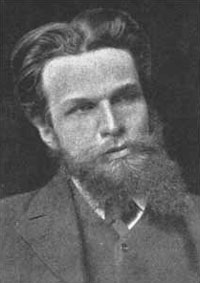 For all the increasing mainstream news coverage of polyamory, most articles still take the perspective of "exposing" something very new and innovative. Which I understand, because most people haven't heard of us. I've had a lot of positive coming-out experiences to a lot of open-minded people, but I've never come to out to anyone outside the BDSM Scene without having to explain what "polyamory" actually means. Certainly the campaign for visibility is a relatively recent phenomenon. The word was only coined in 1990, and The Ethical Slut only published in 1997. Before that, the terms "polygamy" oddly classified us with authoritative patriarchies (like Mormons), or phrases like "open relationship" inappropriately trivialized our "secondary" partners. Even "open relationships" get sensationalized as a modern phenomenon; a recent CNN article claims, "The 1970s introduced the concept of 'open marriage.'" (Emphasis mine.)
For all the increasing mainstream news coverage of polyamory, most articles still take the perspective of "exposing" something very new and innovative. Which I understand, because most people haven't heard of us. I've had a lot of positive coming-out experiences to a lot of open-minded people, but I've never come to out to anyone outside the BDSM Scene without having to explain what "polyamory" actually means. Certainly the campaign for visibility is a relatively recent phenomenon. The word was only coined in 1990, and The Ethical Slut only published in 1997. Before that, the terms "polygamy" oddly classified us with authoritative patriarchies (like Mormons), or phrases like "open relationship" inappropriately trivialized our "secondary" partners. Even "open relationships" get sensationalized as a modern phenomenon; a recent CNN article claims, "The 1970s introduced the concept of 'open marriage.'" (Emphasis mine.)And many poly people enjoy the idea that we're doing something totally revolutionary. And maybe we are, in the sense that we have so few conspicuous precedents to follow. Except, if one reads the right history books, one finds that contemporary poly people aren't as original as we often credit ourselves. Which comforts me, because representing "The Next Sexual Revolution" puts a lot of pressure on my quotidian life, and hearing that my life "is enough to make any monogamist's head spin" makes me feel freakish. So I've started studying my history.
Starting with My Other Self: The Letters of Olive Schreiner and Havelock Ellis, 1884-1920, ed. Yaffa Claire Draznin, 1992. For some background history, Henry Havelock Ellis was one of the first published academic sexologists, and Olive Schreiner was a feminist author. Despite living in Victorian society, they formed a close, occasionally romantic friendship based on their equal intellects. The letters are full of philosophy, book recommendations, constructive criticism of each other's writing, and their shared passion for women's rights - when controversial women's rights included the right to vote and the right of married women to own property. In 1890, Ellis married Edith Lees. "Edith was a lesbian and had a number of affairs with women during their marriage, just as Havelock Ellis has some passionate (if asexual) affairs with other women; the two regularly discusses their respective affairs with each other." (Draznin, p. 468).
Excerpts that particularly warmed my heart:
I have just been going through Miss [Caroline] Haddon's paper which arrived again for the third time this afternoon. It is still more improved and is really a splendid paper... It is no longer a mere plea for polygomy. She says, for instance, that some women need for their mental development not only a large amount of sexual indulgence, but variety. I shall send it to the Westminster [Review] now.
-Havelock Ellis to Olive Schreiner, December 18, 1884
I must live to write that story I've had in my head so many years, about the woman who marries a man who's loved another woman as a mistress before and how she gets the other woman so beautifully to live with them. What Aldis says about monogamy being our present highest aim but something higher coming after it, I've felt so long but never seen expressed anywhere.
-Olive Schreiner to Havelock Ellis, July 7, 1885
I see she [Caroline Haddon] represents you as saying that all marriage must be monogamous. But that is a mistake - is it not? - unless you have changed your opinion lately. You would not set down any rigid dogma like that which weakens rather than strengthens one's position. There must always be variations under natural and healthful conditions.
-Havelock Ellis to Olive Schreiner, February 2, 1886
I believe the only remedy for the agony and suffering that sex inflicts is absolute truthfulness and openness. Not after you are found out but before!! I do not believe a man or woman ever enters on a real sex relation with a man [or] woman without knowing they are sexually attracted to one another. If it is only a few hours before you would have time to tell the person whose sexual life you had forever bound with yours what you are feeling.So much for the "new" sexual revolution and my own strangeness.
-Olive Schreiner to Havelock Ellis, December 12, 1911
No comments:
Post a Comment